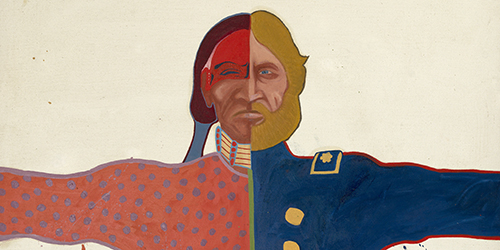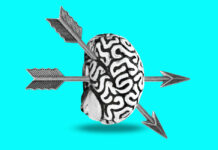A recent article, published in the American Psychologist, assesses the concept of historical trauma on indigenous populations, or Indigenous historical trauma (IHT), in the United States and Canada. In the first comprehensive review of its kind, the authors articulate a collective understanding of the effects of historical injustices across generations. The team of researchers, led by Joseph Gone at Harvard University, also explore whether IHT is “most helpfully conceived in metaphorical or literal terms,” and whether the concept risks pathologizing an already marginalized group.
“Psychologists, mental health researchers, and health scientists who collaborate with Indigenous populations might do well to reflect on the past achievement and potential promise of IHT,” the authors write.
“In many ways, IHT has gained traction by bringing much-needed attention to historical events and processes that have powerfully shaped the experiences of contemporary Indigenous peoples, which allows for more accurate renderings of those experiences for the benefit of both psychological science and Indigenous peoples.”

Over the past two decades, the concept of IHT has been developed in psychology and health literature. IHT is differentiated from PTSD by its colonial origin, collective impact, cumulative nature, and cross-generational risk.
The authors root IHT in the processes of colonization and the effects of “conquest, plunder, impoverishment, which resulted in population decline and subsequent subjugation of Indigenous peoples.”
Gone and colleagues conducted a systematic review of the existing research, focusing on the question, “What do we know empirically about the health impacts of IHT among Indigenous populations in the United States and Canada?” Their population sample included American Indian, Alaska Native, First Nation, Metis, Inuit, and Native Hawaiian peoples. PTSD and other traumatic reactions were included only if some form of group-based discrimination or stress was also present.
Thirty-two articles met criteria for their review, which were grouped into three categories: (1) historical loss studies that use the Historical Losses Scale (HLS) or Historical Losses Associated Symptoms Scale (HLASS), (2) residential school ancestry (RSA), and (3) “other” studies. They found that while both RSA and HLS studies have generated data on the impact of IHT on health outcomes, analyses were too complicated and findings too specific, making conclusive inferences impossible.
They elaborate, “Despite these impressive fledgling efforts, researchers at this time have not yet produced findings that accrue into a coherent body of knowledge that can answer this [research] question.”
While HLS and HLASS studies contain inconsistent adoption, adaptation, scoring, and interpretation of scales combined with intricate patterns of association, RSA studies are comprised of just a small number of Indigenous people that ever attended residential school and even a lower number of those who experienced trauma. Gone and colleagues discuss how “in the absence of standardized cross-item scoring conventions for these scales, researchers have adopted or created their own conventions in ways that prevent the ability to summarize conclusions across studies.
They conclude, “Many studies reported statistically significant associations between higher indicators of IHT and adverse health outcomes. Analyses were so complex, and findings were so specific, that this literature has yet to cohere into a body of knowledge with clear implications for health policy or professional practice.”
The authors also explore how the IHT construct itself may risk further pathologizing a marginalized group and miss a more “nuanced understanding of distinctive and historicized Indigenous experiences,” if not more intricately understood.
The authors encourage additional attention in the IHT literature to “historical nuance and human diversity to avoid simplistic accounts and essentialist traps.” The concept of resilience is also promoted to further explore and incorporate in the metaphorical and literal usage of IHT, that is, “the ability to thrive despite experiences of adversity or trauma.”
As some Indigenous communities have begun to embrace and promote IHT, the authors advise mental health providers and researchers who collaborate with Indigenous populations to consider reflecting on the historical gains and potential significance of IHT.
“IHT, like racial trauma,” they write, “grapples with contextual influences on psychosocial and health phenomena to better appreciate the experiences of historically oppressed and socially marginalized populations.”
****
Gone, J. P., Hartmann, W. E., Pomerville, A., Wendt, D. C., Klem, S. H., & Burrage, R. L. (2019). The impact of historical trauma on health outcomes for indigenous populations in the USA and Canada: A systematic review. American Psychologist. 74(1):20-35. DOI: 10.1037/amp0000338. (Link)















Maybe one of the main reasons for aggression (colonization) is fight against spread of psychedelic-induced psychosis, as in peacetime, this fight consists in making incurable psychiatric diagnoses. From my point of view it’s obvious.
Report comment
Yes, Yessss.
I discard and throw turmoil of this specific issue in history at water. Now I’m better. I stay there by water some things are better left unsaid. I meditate there angry I don’t know just seeming upset. Then I’m laughing angrily and then a giggle. Then I accept. I just accept. I heal. I smile. I’m solumn again as I walk to my car.
Yesss. Ohh Yess.
Report comment
“the authors articulate a collective understanding of the effects of historical injustices across generations. The team of researchers, led by Joseph Gone at Harvard University, also explore whether IHT is ‘most helpfully conceived in metaphorical or literal terms,’ and whether the concept risks pathologizing an already marginalized group.”
The crimes our “mental health”/social service workers have historically, and likely are still today, committing against indigenous people are appalling. I do agree, “pathologizing an already marginalized group” is repugnant behavior and should end. It’s a shame our “mental health” workers don’t understand the concept of “live and let live,” and have chosen to behave as run amok “omnipotent moral busy bodies” instead.
A delusions of grandeur filled, psycho psychologist recently handed me an “art manager” contract, which was in reality a legalese document proving he wanted to steal all profits from my work, take control of all my family’s money, silence my story, and eventually take ownership of all my artwork. Of course I didn’t sign that contract, but the delusions of grandeur, intrusiveness, deceitfulness, and criminal nature of our “mental health professionals” is appalling.
And why did he want to steal all my work? Because it “too truthfully,” “insightfully,” and “prophetically,” tells the story of the child abuse covering up “dirty little secret of the two original educated professions.” If you proactively attack an artist, to cover up the abuse of her child, prior to her being handed over the medical evidence of the abuse, or mentally coming to grips with the crime. She’ll paint the story of your, sickeningly systemic, child abuse covering up crimes. But in this sick and insane world in which we live, where Spirit cooking and pedophilia art are all the rage with the so called “elite,” you’ll also find the opposite type of art. The work done by the Spirit led, anti-child abuse artists.
Oh, but our “mental health” workers must silence all who believe in God and speak out against child abuse, because profiteering off of covering up child abuse is the number one actual function of our highly intrusive, scientific fraud based “mental health” workers.
https://www.indybay.org/newsitems/2019/01/23/18820633.php?fbclid=IwAR2-cgZPcEvbz7yFqMuUwneIuaqGleGiOzackY4N2sPeVXolwmEga5iKxdo
https://www.madinamerica.com/2016/04/heal-for-life/
America needs to start arresting the child abusers and molesters, and the “mental health” workers need to get out of the business of poisoning child abuse survivors, and their concerned parents, en mass, another “marginalized group.” Your child abuse and rape covering up crimes – and the child sex trafficking systems within which you apparently work – are destroying our country, “mental health”/social service workers.
https://medicalkidnap.com/2018/08/05/america-1-in-child-sex-trafficking-and-pedophilia-cps-and-foster-care-are-the-pipelines/
My child rape covering up ex-religion runs social service organizations … child sex trafficking? How sick can they get? I’m quite certain it’s time to end “the dirty little secret of the two original educated professions.” The doctors/”mental health”/social workers and religions need to get out of the child abuse covering up and profiteering business, as well as the child sex trafficking business, if they indeed are involved in that business.
I know my former psychologist’s medical records show evidence she wanted to steal my “4 yr girl.” Was that psychologist involved in child sex trafficking? I don’t know, I didn’t even know such a thing existed back then. But I was able to scare a school, that had a pedophile on it’s school board, who that psychologist was friends with, into closing forever, once the medical evidence of the abuse of my child was handed over. Innocent schools do not choose to close forever, and on of all days 6.6.06, for no reason. And there were rumors of “odd sexual behavior on the part of many boys from that school.” But our police and CPS don’t bother to look into such real life crimes. This needs to change.
Today July 30 Is “World Day Against Trafficking in Persons 2019”
https://www.youtube.com/watch?v=274RLUGWA4A
So glad I’m no longer the only one speaking out against child abuse, and the need to end our society’s apparently run amok “child sex trafficking” and pedophilia problems. How sad, however, what my psychologist bizarrely claimed was a “delusional religious conspiracy” has turned into a systemic, real life, medical/religious conspiracy against millions and million of child abuse survivors, and their concerned family members.
Report comment
People may have endured trauma. Most certainly many will have.
But this does not mean that anyone should sit still and listen to someone telling them that they need therapy or recovery.
We need survivors to stand up for themselves, and this does not mean listening to therapists. It means penalties for perpetrators and reparations for survivors.
Report comment
I think this concept of “IHT” is awful. It trivializes the experience of the Native Americans. And why are they calling them “ill” because of their reaction to a traumatic situation? Especially if it is a common reaction to a traumatic situation?
Report comment
Right on!
Report comment